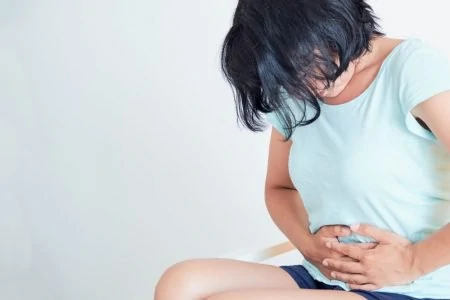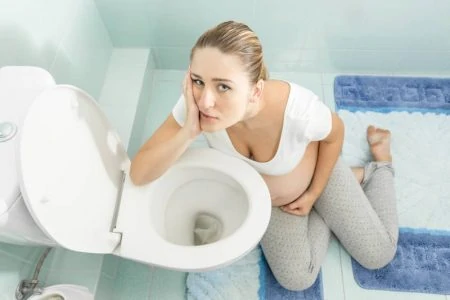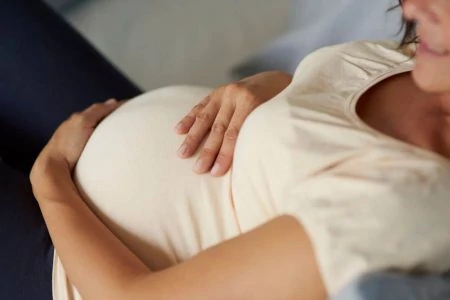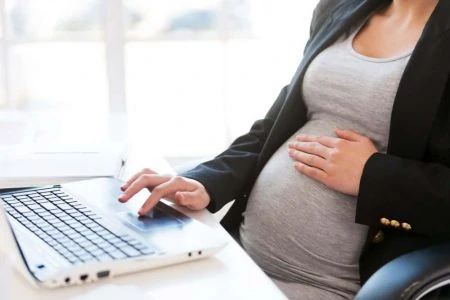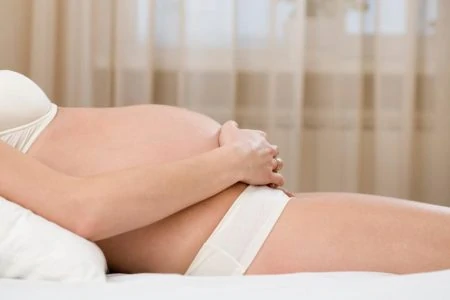Pregnancy changes everything. Just when you think you’ve mastered the nausea, your bladder decides to shrink to the size of a walnut.
Is that constant pressure normal? Could that sharp twinge be something serious like an infection? You aren’t the only one asking these questions. I’ve helped countless expectant moms navigate the uncomfortable world of pregnancy bladder issues.
We’re going to break down exactly why your bladder hurts, distinguish between normal pressure and medical concerns, and share practical tips to help you get some relief.
Key Takeaways
- Identify the cause: Bladder pain usually stems from hormonal changes, a growing uterus, urinary stasis, or infections like a UTI.
- Stay hydrated: Drink 8 to 10 glasses of water daily to flush bacteria, but limit diuretic drinks like coffee or soda.
- Watch for infection signs: Burning urination, fever, lower back pain, or blood in the urine require immediate medical attention.
- Find relief: Use a maternity support belt, practice “double voiding,” and lean forward while peeing to empty your bladder completely.
Bladder Changes During Pregnancy
Your bladder is arguably the most bullied organ during pregnancy. Over the nine months of gestation, it endures hormonal surges, physical squishing, and constant kicks.
Your kidneys expand due to pregnancy hormones. This triggers an overproduction of urine that your bladder must manage. Simultaneously, your baby grows heavier, turning your bladder into a makeshift pillow.
Here is what happens to your urinary system during each stage:
1. First Trimester
My bladder started acting up before I even saw the positive test line. If you feel like you live in the bathroom, you aren’t alone.
Frequent urination is a classic early pregnancy sign. Right after fertilization, hormones flood your kidneys and increase blood flow. This ramps up urine production significantly (1).
Even though your baby is the size of a blueberry, your uterus is already swelling. This puts immediate pressure on the bladder and forces you to run to the toilet often.
2. Second Trimester
The second trimester is often called the “honeymoon phase” for a reason. As your uterus grows larger, it rises up out of the pelvic cavity.
This shift lifts the pressure off your bladder temporarily. You might notice you don’t need to pee quite as urgently. Enjoy this break while it lasts; your baby is still growing, and the pressure will return.
3. Third Trimester
Welcome back to the bathroom marathon. In the final stretch, the baby drops lower into the pelvis in preparation for birth. This process is called “lightening.”
While lightening helps you breathe easier because the baby moves away from your lungs, it puts the baby’s head directly on top of your bladder. The urge to go becomes constant.
You still need to stay hydrated. While waking up every hour is annoying, cutting fluids can lead to dehydration or infections. Most providers suggest front-loading your water intake earlier in the day and slowing down a few hours before bed.
Possible Causes of Bladder Pain
There is a difference between the annoyance of frequent urination and actual pain. While pressure is normal, sharp pain or burning usually signals a specific issue.
Here are the primary culprits behind bladder discomfort:
1. Increased Urine Production
Sometimes the sheer volume of fluid your body processes causes pain.
During pregnancy, your blood volume increases by nearly 50%. Your kidneys have to filter all that extra fluid, which increases your Glomerular Filtration Rate (GFR). Essentially, your body is making pee faster than ever before (2).
When you combine this rapid filling with a uterus the size of a watermelon pressing down, the bladder wall can feel sore or spasmed.
How to Minimize Discomfort
You cannot stop your kidneys from working overtime (and you shouldn’t want to), but you can manage the symptoms:
- Skip the diuretics: Beverages like coffee, tea, and soda irritate the bladder and make you pee more. Save them for special treats (3).
- Stay hydrated: It sounds backward, but drinking less water concentrates your urine, which irritates the bladder lining. Aim for 8 to 10 glasses daily to keep dehydration at bay.
- Double void: When you pee, wait a few seconds on the toilet and try to go again. This ensures you are fully empty.
- Lean forward: Leaning forward while seated on the toilet helps physically push urine out of the bladder.
2. Urinary Tract Infection (UTI)
UTIs are the most common medical cause of bladder pain in pregnant women. This happens when bacteria enter the urinary tract and cause inflammation (4).
It is most common between weeks 6 and 24. The heavy uterus blocks urine drainage, and trapped urine becomes a breeding ground for bacteria.
The most common culprit is E. coli. However, you should also be aware of Group B Strep (GBS). GBS can cause severe infections and requires antibiotics during labor to protect the baby (5).
Doctors also watch for “asymptomatic bacteriuria.” This means you have bacteria in your urine but feel no pain. If untreated, it can turn into a kidney infection (pyelonephritis), which is dangerous for both you and the baby.
Signs of a UTI
Pay attention if you experience these symptoms:
- Burning sensation during urination.
- Cloudy or strong-smelling urine.
- Traces of mucus or blood in the toilet.
- Cramping pain in the lower abdomen or pelvic bone.
- Fever symptoms including chills, shakes, or feeling cold.
If untreated, a UTI can lead to a kidney infection, causing back pain, vomiting, and high fever. This can trigger preterm labor, so early treatment is vital.
UTI Treatment During Pregnancy
Doctors treat UTIs with pregnancy-safe antibiotics. A typical course lasts three to seven days. It is crucial to finish the entire prescription, even if you feel better.
Call your doctor immediately if you have fever, chills, or nausea, as these suggest the infection has moved to your kidneys.
3. Urinary Stasis
Urinary stasis is a fancy term for when your bladder doesn’t empty completely.
Think of it like a kink in a garden hose. Your growing uterus compresses the ureters (the tubes from kidneys to bladder), stopping the flow. When urine sits in the bladder too long, it can cause pain and increase infection risk.
Symptoms of Urinary Stasis
- Inability to pee despite feeling the urge.
- Painful, urgent need to urinate.
- Lower abdominal pain or tenderness.
- Bloating in the lower belly.
Your doctor might perform a postvoid residual (PVR) test via ultrasound to see how much urine remains in your bladder after you go to the bathroom (6). Treatment usually involves antibiotics to prevent infection.
Other Ways to Ease Bladder Pain
If you have ruled out an infection with your doctor, your discomfort is likely just a side effect of growing a human. Here are a few tools to help you cope:
Use a Belly Band
A maternity support belt was a lifesaver during my second pregnancy. It lifts your bump slightly, taking the heavy weight off your bladder and pelvic floor. It won’t stop the frequent trips, but it can reduce the heavy, aching pressure.
Pelvic Floor Exercises
Strengthening your pelvic floor isn’t just for labor prep. Strong muscles help you control your bladder and fully empty it when you go. Ask your doctor about safe Kegel exercises for your specific stage of pregnancy.
FAQs
In Conclusion
Bladder health is vital, and bacteria will run wild if left unchecked. Wear loose-fitting clothing and cotton underwear, and avoid scented soaps or douches. Urinate after sexual intercourse, and change out of wet clothing, such as swimsuits or exercise gear, as soon as possible.
Editor's Note:
Caitlin Goodwin, MSN, RN, CNMFeeling like your bladder is under attack is a normal part of the pregnancy journey. For most women, it is simply the result of a growing baby and hormonal shifts. The pressure will disappear once your little one arrives.
However, never ignore sharp pain, burning, or fever. Conditions like UTIs and urinary stasis are common but require medical treatment to keep you and your baby safe.
Listen to your body, stay hydrated, and don’t hesitate to call your doctor if something feels off. Hang in there, mama!
